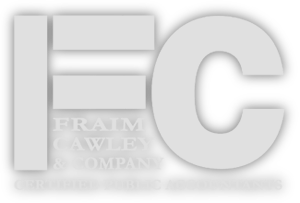“So long honey babe
Where I’m bound, I can’t tell
Goodbye is too good a word, babe
So I just say fare thee well
I ain’t sayin’ you treated me unkind
You could have done better but I don’t mind
You just kinda wasted my precious time
But don’t think twice, it’s all right” –
Bob Dylan, “Don’t Think Twice, It’s All Right”
That was my absolute favorite song for most of my teenage years. I had a visceral reaction to it and it touched me on a deep level. Because it matched what I was going through at the time (or at least what I thought I was going through – “love” at that age is quite the mercurial thing.) Songs and messages about heartbreak and unrequited love, frustration and angst, and the like – those were all the things I felt. And songs that expressed those feelings made a real impression.
The other day I was listening to the song for the first time in a long time and it was different. I still love the song, but I realized it just didn’t “hit” me the same way it used to. It was a bit of an odd sensation – since this was one of the most impactful songs in my life and it just did…nothing.
I thought about it a little bit and it didn’t take too long to realize why: the song doesn’t match the reality of where my life is now. The message of the song, while just as great as it ever was, just doesn’t hit close to home anymore. I’ve been married for nearly six years to an amazing woman, we have a lovely new baby daughter; so that previous “hole in my heart” got fixed a long time ago.
I contrast that to songs that had no effect on me in the past but can make me emotional almost immediately now. Songs about potentially losing your spouse, parents getting older and eventually dying, the idea of children growing up and moving out – all of those more closely match my life now (or what could be in the future) and naturally have more of an impact.
In the business world, aside from this bigger picture/personal circumstances reasons for what might move us at one time and later on not as much, there is the additional reality that people’s tastes simply change somewhat over time. And this phenomenon is of course not unique to business or music. Sometimes we re-watch a movie years later and find that we don’t care for it as much as we used to. Or the décor choices we make in our homes, or the clothing we choose, in time become less appealing as styles come and go. People’s preferences are always changing, the market is constantly adapting, new demands are popping up while others are dying out.
As Heraclitus said: “Everything changes and nothing stands still.”
Or to quote Dylan again: “The Times They Are a-Changin’.”
That’s why it’s always surprising to me how many businesspeople are unwilling or unable to adapt. They developed one skillset, one method of doing things, one model – and dag-nabbit, that’s what they’re sticking to!
It’s especially funny (and unforgiveable) to see this in the online space since it changes faster than other spaces, but the principle holds true across all industries. People instinctively want to stick to what they know. It’s comfortable.
And that works until it doesn’t. Technology and market conditions are constantly evolving. In 1870, 50% of the U.S. population were farmers compared to 2% today. In 1970, manufacturing accounted for 26% of all jobs compared to about 9% today.
What other people need and want is almost destined to change over time. However, what we know and practice in our businesses will only adjust to this if we make it happen. If we stand still, we may be able to get away with it for a while, but being set in our ways simply will not work long-term
This isn’t always easy. We have to be vigilant so as not to be overtaken by the changes that are thrown at us. We have to make sure that we are keeping our business skills, strategies, and outlook fresh. Otherwise, we may be planning for and creating our own obsolescence.
And then we’ll be brought to tears by an entirely different type of sad song.
Any accounting, business, or tax advice contained in this communication, including attachments and enclosures, is not intended as a thorough, in-depth analysis of specific issues, nor a substitute for a formal opinion, nor is it sufficient to avoid tax-related penalties.




